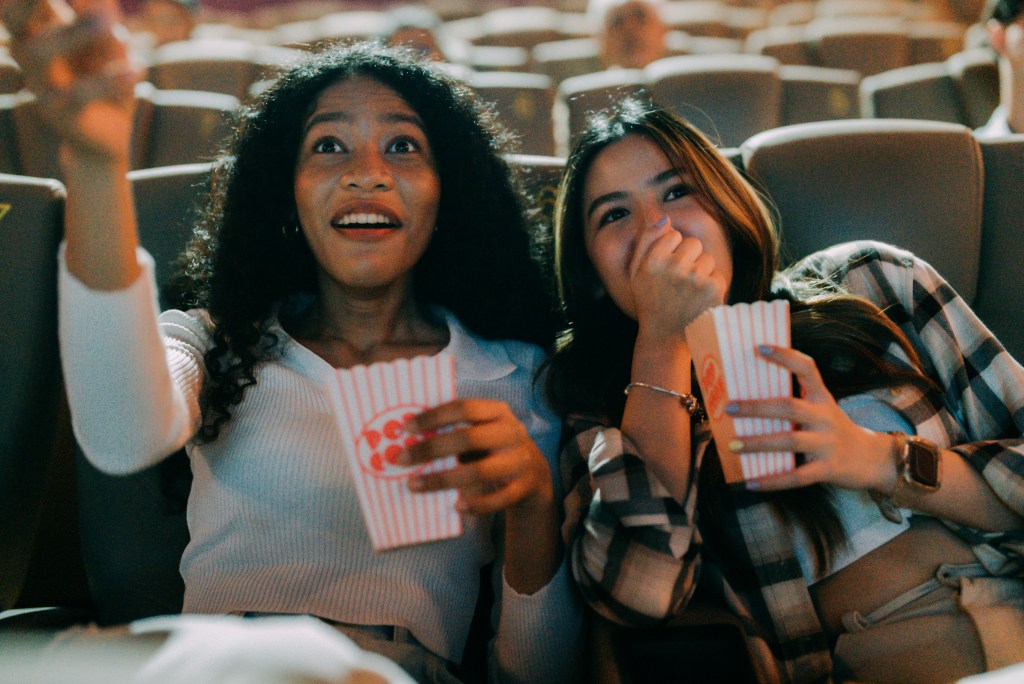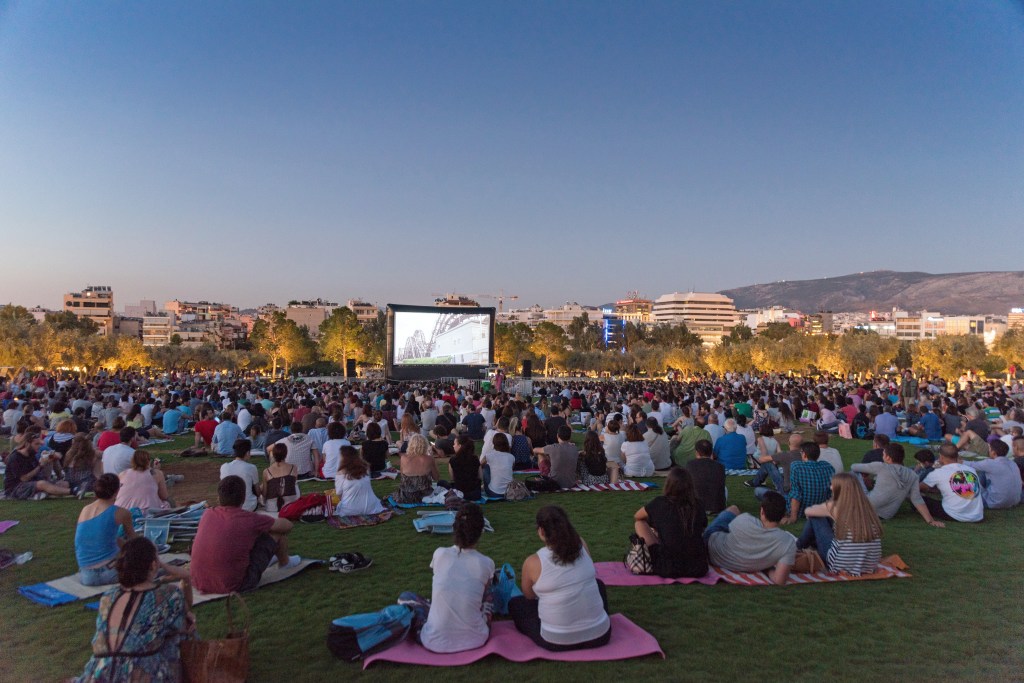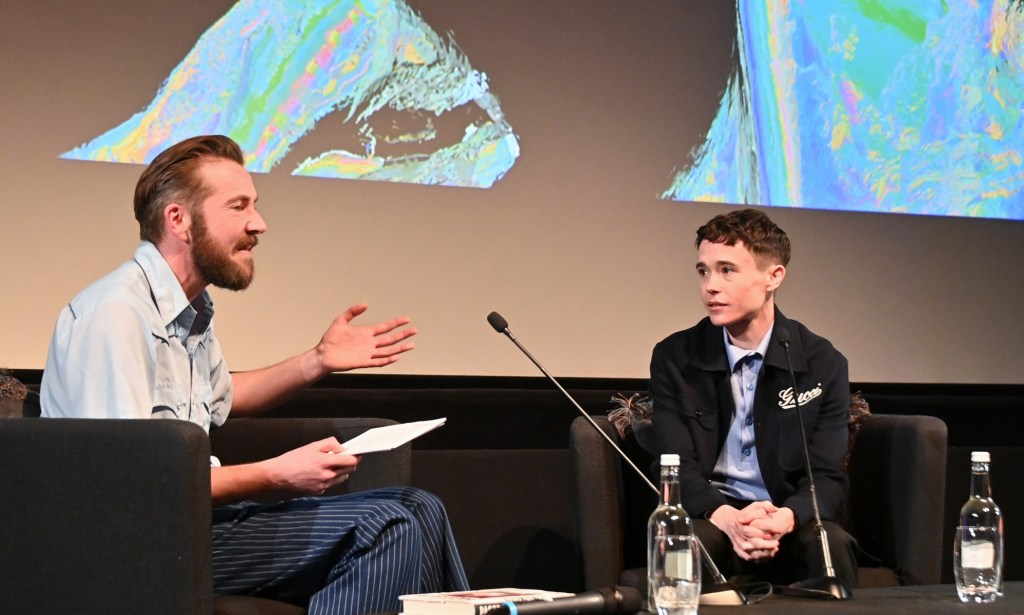Queering cinema since the ’70s: The fascinating history of LGBTQ+ film festivals

Long lines form under the Grammercy Theater marquee for the Gay Film Festival and Michael Caine starring in “Educating Rita” on East 23rd Street in the Grammercy Park neighborhood on December 3, 1983 in New York City. (Getty)
LGBTQ+ film festivals are important and essential events that celebrate queer cinema from around the world.
Film festivals span language, culture and borders to unite audiences, and some of the largest have sections to celebrate queer cinema.
The Cannes Film Festival has had the Queer Palm award since 2010, recognising LGBTQ+ films such as Portrait of a Lady on Fire, Monster and Carol.
The Venice Film Festival’s Queer Lion has celebrated titles including Housekeeping for Beginners and The Danish Girl, since 2007.
Some organisations and events even put queer filmmaking at their core. But what is the history of these LGBTQ+ film festivals, when did they start and why are they still important?

When was the first LGBTQ+ film festival?
The earliest LGBTQ+ film festivals date back to the 70s, less than a decade after the lifting of the Hays Code which banned, among other things, homosexuality on US screens.
The Gay Film Festival of Super-8 Films was launched in San Francisco in 1977. In 1982, it evolved into Frameline: San Francisco International Lesbian and Gay Film Festival, then, in 2005, becoming the San Francisco International LGBT Film Festival.
Today, it is referred to as The Frameline Film Festival.
The 1980s saw an explosion in these crucial events. In the UK, BFI Flare: London LGBTIQ+ Film Festival was founded back in 1986, Milwaukee LGBT Film & Video Festival started in 1987, as did MIX NYC, while the Hong Kong Lesbian & Gay Film Festival was founded in 1989.
Ljubljana LGBT Film Festival is the oldest LGBTQ+ movie festival in Europe, it was founded in 1984.

What is the largest LGBTQ+ film festival?
The Frameline Film Festival is also recognised as the largest queer film exhibition event in the world.
According to their statistics, 63,000 people turn up each year for what they describe as “the most prominent and well-attended LGBTQ+ arts programme in the Bay Area”.
In 2020, Frameline partnered with Los Angeles’ Outfest, the New York Lesbian, Gay, Bisexual, & Transgender Film Festival – known as NewFest – and Toronto’s Inside Out Film and Video Festival, to create the North American Queer Festival Alliance.

Frameline is also the longest-running film festival with an LGBTQ+ focus.
Over the years. Frameline has screened of a number of notable works, including A League of Their Own, Welcome to Chechnya, God’s Own Country and Hedwig and the Angry Inch.
As this research map demonstrates, by 2018 there were 389 LGBTQ+ film festival events and awards worldwide. In the UK, there’s BFI Flare: London LGBT Film Festival, the Scottish Queer International Film Festival and the Iris Prize LGBT+ Film Festival.
There are also indie LGBTQ+ film festivals which show and support queer films, often with a broader and more experimental perspective.

Why are queer film festivals important?
For many queer filmmakers, LGBTQ+ film festivals are vital spaces to showcase their work to audiences for the first time. It’s also important to note that most of these festivals have had a strong connection to the political and social movement behind the LGBTQ+ agenda: these films don’t exist in a vacuum.
The events are also vital networking spaces for queer creatives. The films being shown at a festival might not have secured distribution before the screening and this is a chance for producers, distributors and members of the media to see them and to spark industry discussions.

A simple screening with like-minded LGBTQ+ creatives can be validating on both a personal and professional level.
From the perspective of a viewer, attending these festivals is a great way to be immersed in the buzz and allows people to get a first look at the queer cinema.
Check out your local queer film event so you can be one of those people who says: “Oh, I saw this when it was at festivals.”
Share your thoughts! Let us know in the comments below, and remember to keep the conversation respectful.
How did this story make you feel?

